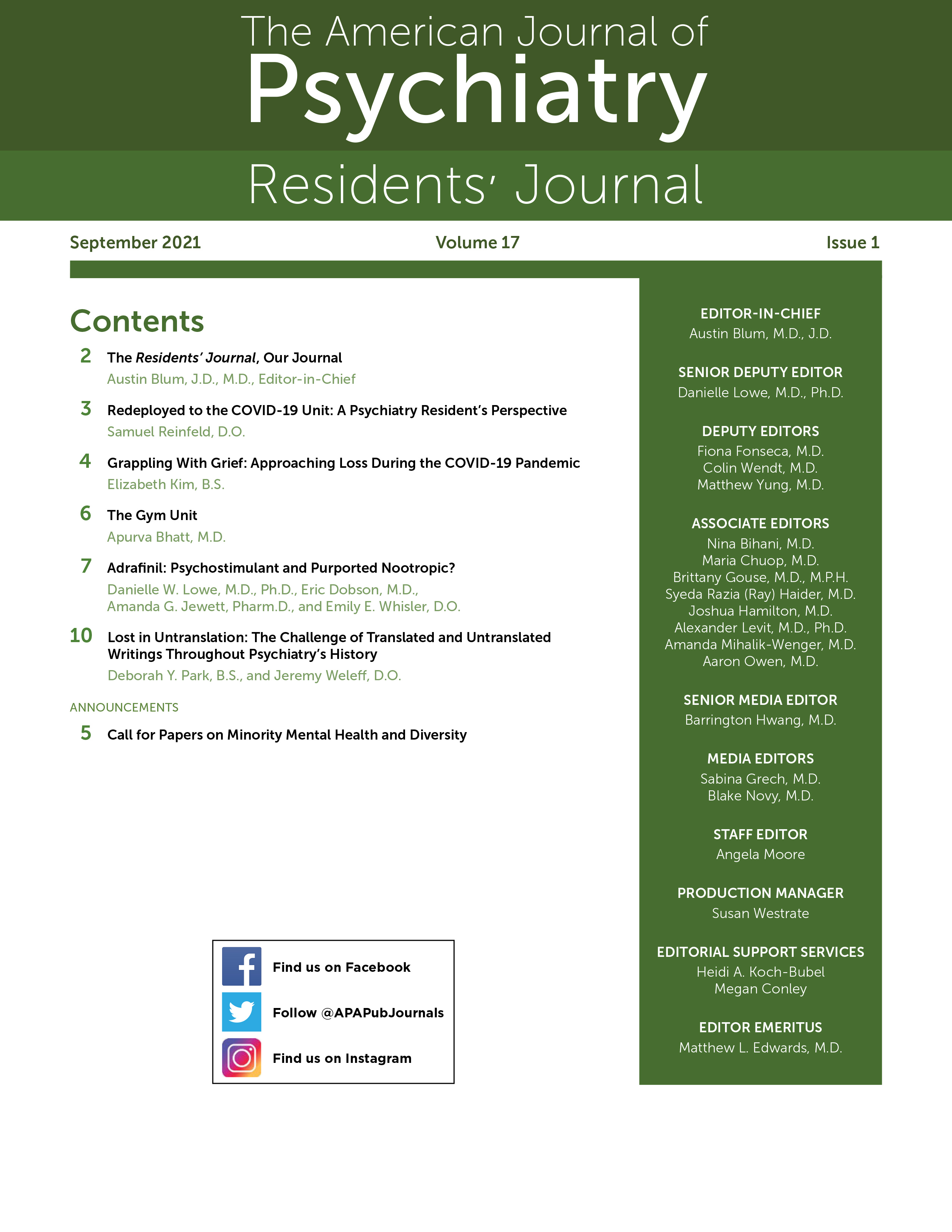I swiped my badge before entering the hospital's gymnasium, which had been transformed into an inpatient forensic psychiatric quarantine unit. The high ceiling and glossy wooden floor did not disguise the thick black lines of the basketball court. Blue padded mats lined the walls. The basketball hoops had been raised, and their nets hung lifelessly. The gym was large and airy, and everything echoed. On my right stood a folding table with paper charts, a box of gloves, and hand sanitizer. On my left were makeshift patient rooms. Wooden beds sat 6 feet apart, each separated by metal poles that held up white cloth dividers. Plastic bins intended for belongings rested near each bed. In the middle was a television set with chairs set up around it: a makeshift milieu.
I skimmed over my patient's forensic pretrial report, with its familiar order (incompetent to proceed). I then looked up at him across the gym. He was wearing a soiled orange jumpsuit. His hair was disheveled, and he was mumbling and laughing to himself. I smiled as I approached him, but he appeared fearful of me. This was surprising, as I am a small-statured Indian woman. I quickly realized that he could not see my smile through my surgical mask. I gently pulled a chair next to his bed, 6 feet away. He was guarded and suspicious of me and had rambling, disorganized speech. At times, he mumbled to himself and looked over his shoulder, presumably responding to internal stimuli.
As I entered the flow of my interview, I quickly realized how much my style relied on my facial expressions: the way my lips creased open when I smiled or the way my brow furrowed with concern. I began to pay close attention to my gestures and level of eye contact, hoping that it would help.
He pointed to his head and said, "Something is wrong up here." He proceeded to give a history consistent with a first episode of psychosis, which worsened while he was in jail. I explained to him the usual steps of care and offered treatment options. He looked at me curiously; then, his eyes darting around the room, he whispered, "Is this really a hospital? I just want to go home. I think there's been a misunderstanding."
Then it hit me. Imagine being in jail, experiencing odd perceptual disturbances, sitting in solitary confinement, and suddenly being brought to this strange gymnasium. Our hospital had done its best to make our gym look and feel like a psychiatric unit, but some elements could not be disguised. I smiled and explained that this was indeed a hospital and showed him the hospital logo on my badge. He nodded, but his eyes narrowed as though he did not fully believe me.
COVID-19 has changed how I connect with my patients. The surgical mask creates a barrier for nonverbal communication that previously didn't exist. I tell all my patients, "I'm here to help you in any way I can. My goal is for you to live a happy and healthy life in the community." This statement communicates my intention, and it is usually well received. With its high ceiling and open space, our gym unit allows for the furniture to be rearranged to adapt to specific patient needs. It has also provided a space for me to be more mindful of the subtleties of psychiatric interviewing. Working on this unit has helped me develop flexibility and appreciate subtle communication styles, which I believe will help me become a better psychiatrist. I believe that if the gym unit can adapt, so can I.
